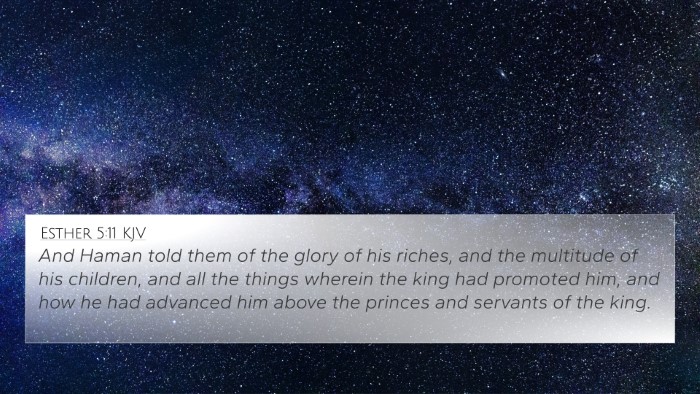Meaning of Genesis 31:1
Genesis 31:1 is a significant verse in the narrative of Jacob's life, particularly concerning his relationship with Laban. The verse states:
"And he heard the words of Laban's sons, saying, Jacob hath taken away all that was our father's; and of that which was our father's hath he gotten all this glory."
This verse indicates the rising tensions between Jacob and Laban’s household, highlighting themes of jealousy, betrayal, and the struggles of labor and reward.
Summary of Biblical Insights
The insights from various public domain commentaries shed light on the deeper meanings encapsulated in this verse.
Matthew Henry Commentary
Matthew Henry emphasizes the emotional and relational dynamics at play, noting that Jacob's success was perceived negatively by Laban's sons. Their accusation serves as an expression of their resentment towards Jacob, whom they view as a usurper, despite the divine blessing he received. Henry points to the theme of divine favor, highlighting that God's hand was upon Jacob, which caused his prosperity.
Albert Barnes Commentary
Albert Barnes elaborates on the implications of the words spoken by Laban’s sons. He suggests that Jacob's prosperity could not be reconciled with their view of him as a deceiver and thief. Barnes reflects on the importance of understanding the cultural context where wealth and blessings were strongly tied to familial identity and honor.
Adam Clarke Commentary
Adam Clarke focuses on the potential influences of Laban’s household's perception of Jacob's wealth. He notes that Laban’s sons attributed their father’s loss directly to Jacob’s actions, failing to see the providential role that God played in Jacob's success. Clarke highlights the idea of moral integrity as well since Jacob's actions stemmed from divine instructions and promises.
Key Themes Observed
- Jealousy and Conflict: The discord between Jacob and Laban's sons illustrates how jealousy can ferment strife within familial bonds.
- Divine Blessing: The verse reflects on the overarching theme of God's sovereignty and His favor upon His chosen people, despite others' negative perceptions.
- Moral Integrity: Jacob’s success is affirmed as being aligned with God’s purpose, showcasing a pivotal moment of integrity amid adversity.
- Communication and Gossip: The words of Laban’s sons represent the spread of negative perceptions that can arise from familial disputes.
Bible Verse Cross-References
In understanding Genesis 31:1, several cross-references can deepen the study:
- Genesis 26:12-14 - Isaac's prosperity in Gerar which evokes jealousy.
- Genesis 30:43 - Jacob's increase and the initial prosperity against Laban.
- Genesis 31:7 - Jacob recounting Laban's dishonesty and God's intervention.
- Genesis 27:41 - Esau's jealousy toward Jacob after receiving the blessing.
- James 4:3-4 - The conflicts and desires that arise from envy and friendship with the world.
- Proverbs 14:30 - The impact of jealousy on the heart.
- Romans 12:19 - The principle of leaving vengeance to the Lord, contrasting human behavior.
Use of Cross-Referencing Tools
Utilizing tools for Bible cross-referencing, such as a Bible concordance or a cross-reference Bible study, can help readers find connections and deepen their understanding. By employing a Bible cross-reference guide, one can unlock the intricate web of Biblical texts that dialogue with each other, aiding in better interpretations of verses like Genesis 31:1.
Thematic Connections and Analysis
To achieve a comprehensive understanding of the themes, a comparative Bible verse analysis may also prove useful. Identifying connections between Old and New Testament narratives enriches one's study. For example, the jealousy expressed by Laban's sons paralleled the envy seen in various New Testament verses regarding Jesus and His followers.
Final Thoughts
Genesis 31:1 serves as a profound reminder of the complexities surrounding human emotions and relationships. Cross-referencing this passage provides insight not only into Jacob's situation but also into broader spiritual themes relevant to any audience seeking to study the Bible deeply.






















